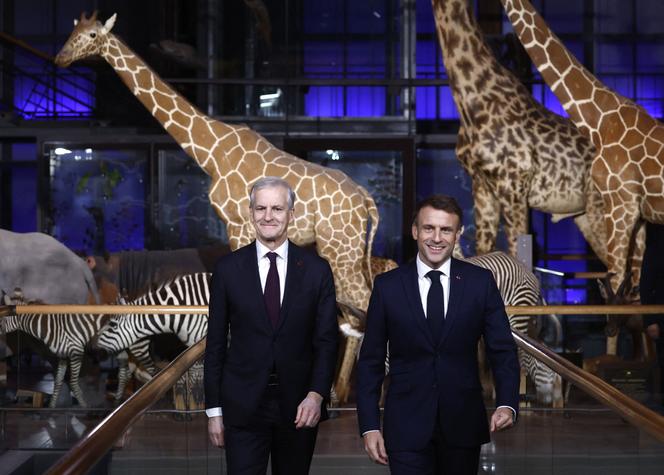


Talking about the fate of the poles and the cryosphere at a time when the world is torn apart by conflicts in Ukraine and the Middle East wasn't easy. This week, despite the geopolitical crises, Emmanuel Macron held his Peace Forum, a cycle of meetings covering a wide range of themes, including the situation of the civilian population in Gaza, digital technology and artificial intelligence, and the situation of glaciers and ice floes, sentinels of global warming.
On Friday, the French president concluded the One Planet Polar Summit with a speech at the Muséum National d'Histoire Naturelle (MNHN) in Paris. "We are in a multi-crisis world where everything is connected and interrelated," Macron told scientists and government leaders gathered in the Grande Galerie de l’Evolution. "The subjects of biodiversity and climate (...) are the subjects of tomorrow's crises, and they are inseparable from the hottest security issues we face today. We will avoid tomorrow's misfortunes by doing this. Our duty is not to deviate from this agenda."
Gathered since Wednesday, the scientific community from some 40 countries had drawn up an assessment of a world in danger. Climate change is three times faster in Arctic regions, and at least half the world's glaciers are set to disappear even if global warming is limited to 1.5°C above pre-industrial levels.
Noting that 1 billion people are threatened by rising sea levels, Macron spoke of an "unprecedented" and "civilizational" challenge for humanity. And he pledged to mobilize 1 billion euros to support polar research. His ambition is to build a polar ship bearing the name of Michel Rocard, the former French prime minister and a key player in Antarctic environmental protection.
The money will also be used to finance two projects, explorer Jean-Louis Etienne's Polar Pod to study the Southern Ocean and the Tara Foundation's Arctic Station. Starting in 2026, France will rebuild its Dumont d'Urville station and work to renovate the Franco-Italian Concordia station, both in Antarctica.
But the summit was also an important diplomatic rendezvous three weeks before the start of the 28th Conference of the Parties on Climate Change (COP28), to be held in Dubai from November 30 to December 12. After bitter negotiations on certain terms, 32 countries signed the "Paris Call for Glaciers and Poles," which expresses alarm at the situation of polar ice caps and explains that 200,000 glaciers are threatened with "almost irreversible retreat."
You have 65% of this article left to read. The rest is for subscribers only.
